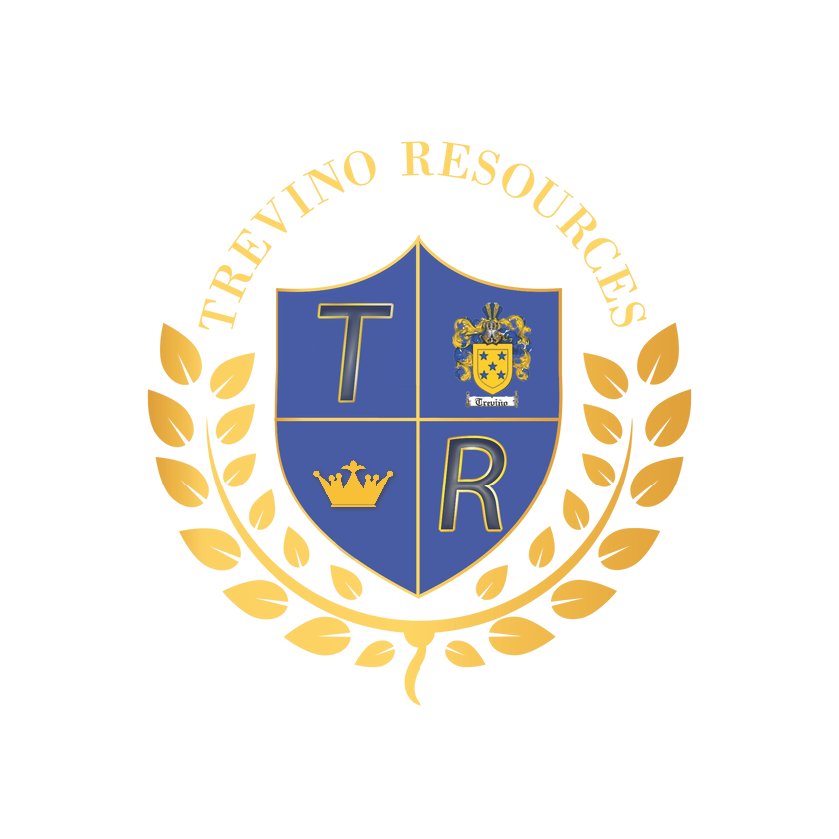Bill Burch is running for Railroad Commissioner of Texas to make a change. On this episode, my co-host Kristy Kerns and I visit with Bill and dive into his extensive background in oil and gas has how his world travels have brought him to running for commissioner. This is an episode you don’t want to miss. We even discuss Crane County again.
Highlights of the Podcast
03:50 – Bill Burch background
06:12 – The North Sea conditions
07:16 – The Deepwater Horizon blowout
07:58 – About running for office
08:39 – The scenario of saltwater disposal
10:24 – The Permian development
13:11 – The groundwater contamination
15:02 – The salt water disposal issue
15:28 – Largest earthquakes in the state of Texas history
17:56 – The National Incident Management System
18:37 – The Texas Railroad Commission
20:14 – Example of classic misinformation
22:20 – The oil and gas industry
25:10 – The biggest thing in the population discussion
28:02 – The methane emission
31:57 – One of the things in particular about the Texas Railroad Commission
37:09 – The number one issue in the agency
40:09 – The Natural Energy Resources Commission
44:05 – The vision 2100 plan
Please reach out to Bill Burch on Linkedin
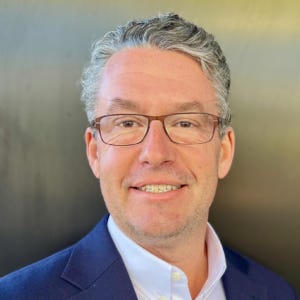
Check out StatusJet HERE
THE CRUDE TRUTH Ep. 66. Bill Burch – Candidate for Railroad Commission of Texas
Rey Traviño [00:00:00] The primary election is right around the corner. Early voting starts February 20th at the Railroad Commission. Race is heating up. We talked to one of those candidates on this episode of The Crude Truth.
Narrator [00:00:12] In 1901 at Spindletop Hill, near Beaumont. The future of Texas changed dramatically. As, like a fountain of fortune, thousands of barrels of oil burst from the earth towards the sky. Soon, Detroit would be cranking out Model TS by the millions and America was on the move. Thanks to the black gold being produced in Texas. Now, more than a century later, the vehicles are different, but nothing else has truly changed. Sure, there may be many other alternative energy sources like wind and solar and electric. But let’s be honest. America depends on oil and entrepreneurs. And if the USA is truly going to be independent, it has to know the crude truth.
Narrator [00:00:55] This episode is brought to you by LFS chemistry. Committed to being good stewards of the environment and providing the tools so you can be too. Nape Expo where deals happen. Air compressor solutions when everything is on the line, air Compressor Solutions is the dependable choice to keep commercial business powered up. Sandstone Group, Exec Crue. Elevate your network. Elevate your knowledge. Oil and Gas Workers Association, Pecos country operating. Fueling our future.
Rey Traviño [00:01:28] Well, hello again and just thank you, as always, for tuning in, listening or watching to another episode of The Crude Truth. As you know, it is election season. It is 2024. Based on my last week’s episode, we’re getting there right now. We got primaries, which are just as important as November. And early voting for primaries start February 20th here in the great state of Texas. Today I’ve got again with me, my great co-host, Kristy Kerns. Kristy, how are you?.
Kristy Kerns [00:01:57] I’m doing amazing. How are you?
Rey Traviño [00:01:57] Oh, my gosh. Doing really, really well. Glad to see you here again today on this wonderful morning. Whatever day it is of the week, it’s Little World.
Kristy Kerns [00:02:05] Friday.
Rey Traviño [00:02:05] It’s Friday. Okay.
Bill Burch [00:02:06] It is Friday.
Kristy Kerns [00:02:07] It is
Rey Traviño [00:02:07] Friday.
Bill Burch [00:02:09] As well.
Rey Traviño [00:02:09] Oh my God, it has been a whirlwind. But our guest today is someone that is running for railroad commissioner looking to unseat the incumbent. He is a Democrat hailing from Houston, Texas. Bill Burch, bill, how are you?
Bill Burch [00:02:22] I’m great. Actually, I’m not from Houston, Texas. I actually live in Polk County. So a Lake Livingston area, and, right between Livingston and Onalaska, just north of us 190. So I’m actually one of the very first statewide candidates to ever run out of Polk County.
Rey Traviño [00:02:36] Well that’s awesome. I don’t ask me why I was thinking use it and, but okay, that’s awesome. That’s exciting to.
Bill Burch [00:02:42] Know. It’s it’s been it’s been great. It’s been a lot of fun.
Rey Traviño [00:02:44] Well, I will we will talk about, where you grew up. But let’s talk about being in Texas because you’re from PA, correct?
Bill Burch [00:02:50] That is correct.
Rey Traviño [00:02:51] How long have you been in the great state of Texas?
Bill Burch [00:02:52] I came down here for my very first trip right when I graduated university, year of 2000. And, I worked for Schlumberger at the time down in Richmond, on the edge of zone before Sugarland became the massive complex that it is today. And then I basically spent the vast majority of my career rotating between international assignments and back and forth between Houston. So I’ve been to 60 plus countries in my oil field experiences. And, home base has been Houston basically since officially since 2008. I, finally, really, truly called Houston home. And, and then I, I lived in Houston at the time. Okay, that’s probably where that comes from. And then in 2017, I decided to move full time up to Lake Livingston. And, I’ve been a member in Polk County since.
Rey Traviño [00:03:35] Oh, my gosh, I love it. Kind of a little quieter up.
Bill Burch [00:03:37] There, I love it. Yeah. Like, life is, like lake life. There’s nothing wrong with East Texas and living like life, I’ll tell you that. Much success in traffic in, Beltway eight and Grand Parkway. At times you can say thank you. I don’t have to deal with that anymore.
Rey Traviño [00:03:48] Oh my gosh. Well, let’s talk about your background in Schlumberger. I mean, obviously traveling the world. You know, what was that like? And how how’s that the know how was that time?
Bill Burch [00:03:58] Well, it was a whirlwind experience. So when I first graduated university, five weeks later, I landed in Al Khobar, Saudi Arabia. I spent, the next two and a half years working in the Middle East between, living in Oman and working in Pakistan and going around to Kuwait, UAE, Dubai. I spent time in Saudi, of course, and I to say, after nine over 11, I decided that, the environment and the challenges of travel and everything else, it was time to take a change of pace. Okay. So I joined Halliburton and I went to work as part of their Global Flying Squad of six guys. We did everything in the all the fleet services. We ran directional drilling tools to LW and MWD services. We did new contract start up, service quality issues, and areas where districts didn’t have engineers that could run tools and jobs. And I was all over the world in 25 plus countries at that time. Other racking up about a quarter million frequent flier miles a year. And, I mean, I bounced everywhere, and I didn’t think that was crazy enough. So when I went to LSU in zero seven to get my master’s, I then joined Wild Well Control, which then went into the oil well firefighting side of things. And then, well, let’s just say I never was home.
Rey Traviño [00:05:04] Oh my God,.
Bill Burch [00:05:05] I live out of a blowout bag. And, you have the joys of, truly traveling and experiencing the world at a totally different level as an oil well. Firefighter.
Rey Traviño [00:05:12] Holy cow. I didn’t know you did. The Red deer thing.
Bill Burch [00:05:15] I did, I did for, six and a half years with wow. Well, control. And then I went on my own, in 2013 as a consultant. And I worked for, initially for Chevron Deepwater, and then I was their in-house consultant. And also I did some work for, Pemex, where I put out the very first, shallow water flow in 10,000ft of water every. I’ve been killed in the industry. Whoa. And, after that, I went to go work for the North Sea division of Chevron. And I worked on one of the very first wells that hadn’t been drilled since, the Ocean Odyssey incident in 1991.
Rey Traviño [00:05:46] Whoa. The North Sea is no joke. It’s cold. Those are some of the worst waters that there are in the world.
Bill Burch [00:05:52] Yes, sir. And in fact, that winter, we actually had some of the worst rogue waves that they had seen in probably 20 years. And we were actually shut down for when all weather for a good week and a half. Because of the actual weather, it was horrendous. We actually had to disconnect from the sea floor and actually had to float. It was that rough. So. Oh, yeah. Absolutely. It’s. It’s it’s legit. The North Sea conditions are legit.
Kristy Kerns [00:06:14] I love watching those videos. I want to be on there. But yes, I love
Bill Burch [00:06:17] Yeah, I will say that when you do see the, subsea riser joint literally stroke the full eight meter down and up and down and up and you’re like, yeah, okay. This we’re really bouncing feet. That’s 24ft. Yeah. So that’s when you know, when you’re heaving that much, it’s like, wow. Woof. So, after that, you know, I, I kind of, I worked on some alternative energy projects. I got my first U.S. patent approved as a, carbon free energy technology that, generates hydrogen and then, ended up in Nigeria, of all places on a, another blog in the Delta. And, while I did that, I was also, called za, the A-Team, the cattle company ranch on West Texas, where I did the very first two zombie wells that, have been featured and talked about quite a bit, and Texas Monthly and others. So that was, what started this whole process to actually go run for office was, I was just dealing with the, intimate cattle company.
Kristy Kerns [00:07:10] Wow. Okay. That’s such a great story.
Bill Burch [00:07:13] Oh, and I, you know, I also was, one of the people that BP called the morning the Deepwater Horizon blowout. And you know how I did. I spent 140 days working at BP’s office. I was part of the flow rate calculation team. I was part of the top Gill team. I was part of their relief wall team on both the relief wall executions and design, and was also part of the subsidy capping, design team. And we were not part of the static kill, which ended the worst oil spill in the Gulf of Mexico history. So, yeah, you know, I’ve, in 23 years business, my career has had some very interesting twists and turns, and I’ve had the pleasure of truly experiencing some things in the industry that, are really unique. So it’s been a pleasure.
Kristy Kerns [00:07:49] That’s amazing. The stories that led you up to obviously running as. Yeah, yeah. Tell us a little bit more why you decided to run.
Bill Burch [00:07:56] So, you know, the hardest thing about running for office was that I’m not a politician. I mean, I’m an engineer by heart. You know, it’s. I love working in the field. It’s. Like I’ve always said, it’s. I love my car more. I love my canals. Yeah. Oh, I always says, wow, you can actually dress up like you can actually pull off a suit and tie. And I’m like, well, I’m on. My mom’s happy, right? And as long as I don’t swear too much. My wife was also very happy. The biggest thing I found was that I was very disappointed. Over the years, I’ve had a few run ins with the Railroad commission. I did one job in East Texas. Unfortunately, I’m still under a confidentiality agreement. I can’t disclose a lot of information, but it was a 10 million barrel underground blowout that occurred in Panola County, and the operator spent $77 million to plug one. Well, and this was due to the first time I’d ever seen the scenario of saltwater disposal occurring in an oral county from the Haynesville production, and the over injection and unregulated injection of the saltwater had caused this underground blowout. Well, the problem was that it had doubled the port pressure from when the operator originally drilled the well. So in 1993, when the operator drilled the well, they drilled it with no, no mud. Wait, it was a regular well. There’s no issues. Well, by the time we got on to it in 2010 through 2011, it took 18 months to kill as well, and the port pressure had more than doubled, and it was flowing from the zone where it was being injected into up to the casing shoe and then back out again. And it had created a mud wake. That was an unkillable scenario and unkillable. Well. Whoa. Now, the original design engineers never would have allowed for this scenario had they known that this zone was going to be used for saltwater injection. But what the railroad Commission did at the time, which really shocked me, and what kind of drove in this whole scenario, is that there were permission blame the operator for failure to have isolation on a well. It was drilled 20 years prior to the start of water injection. Well, there’s no competent engineer that would have said I wouldn’t designed and isolated the casing had that been the scenario that I know. So that was really quite remarkable at the time to see that this scenario developed well, how did we solve the problem? Well, we had to bleed off 450,000 barrels of produced water and transported off far enough away to not allow the port pressure to recharge. Well, you know, these are not the kind of solutions that are going to be cheap in the industry. To try to fix this subnormal pour pressure these over pressurized zones. They’re occurring. So fast forward to 2021. Well you know, the Permian development with the unconventional resources and especially the Delaware in particular has exploded since, well, 2008. We. Started drilling. But really the 20 1314 cycle when the Permian. Development really exploded with the Delaware. Well, for every oil and barrel oil we get out of the ground in the Delaware, we get somewhere between three five barrels of water with it. So the problem is we drill more wells and we produce more oil, and we’re producing like 5.9 million barrels a day of oil out of the Permian. The problem with the vast majority of the Delaware production is that it’s extraordinarily heavy in water. So all that water has to be re disposed of. Well, the problem with the disposal site is that we have filled up all the conventional resources that we used to use for disposal, so we’ve had to drill more saltwater disposal wells. Well the problem was that if you drill them. So if you know anything about the Permian, the middle section of the Permian where we produce all of this oil from the Delaware or even in the Midland Basin is a non it has no porosity, no permeability. So you can’t inject water back into it. It’s like trying to you can get the water out of the concrete and you can’t put the water back into the concrete. Right. So we have to either go below it so it takes a lot more times or heavier pressure. And it’s a lot more expensive to try to inject the water deeper or we ejected shallower. But the problem with the shallower is that that’s where we drilled all our original wells. Pre 19 1999, you know, 2000. These are all the historical wells in the San Andres and the Queen Sands and all these other units. Well, the problem with that is that none of those wells drilled in the 1920s, 30s, 40s, 50s and 60s were constructed worth a damn where we have poor isolation of cement from the original construction, or we’ve got failed pet cement, or we got pathways that are flowing. So as we’ve increased the poor pressure from all of the saltwater disposal shallow, it’s found all it’s ways to get up and now exit out sideways. Right. So what we’re finding is that this area in Crane County, Ward County, Reeves County, 500,000 plus acres is probably a low end estimate, maybe closer to a million, million and a half acres is a higher investment.
Rey Traviño [00:12:30] Okay.
Bill Burch [00:12:31] To put this in perspective, what’s a half a million acres? The entire city of Houston has 426,000 acres. This is bigger than the city of Houston now. Wow, that’s already blowing out underground and is already flowing into the groundwater. We have proven examples now in Crane County showing that we have groundwater contamination from our legacy wells that weren’t plugged in, adequately isolated from the salt water disposal problem. So when I went to the 19 a cattle company ranch in June of 2000 and I saw what was happening, I went to the Railroad Commission and I said to them, I said, you have to get ahead of this narrative. This is going to be a disaster scenario for everybody in oil and gas. If we don’t find a way to deal with the groundwater contamination, the zombie wells that are going to be a major phenomena, cost basis in issue and risk because there’s thousands of them. I mean, this isn’t just a short amount of plug wells that exist in West Texas. On this ranch alone at 19, a ranch, there is 400 plus wells on the ranch, and out of the 102 excavated so far in the last two years, 91 of them are currently flowing. So if that rate of sale, you’re talking about 85, 90% of the wells that we’re excavating are currently flowing at surface. I’m how how big of a problem is this? So I’ve been trying to get to the railroad commission saying, look, look, you need to understand where this water is coming from. What are the real zones of flow? There’s a lot of discussion amongst the geophysics and geoscience communities about water potential causation, but nobody really knows. It hasn’t been any real diagnostic work done. You all need to be the one that takes charge and lead on this. And they’re like, thanks for coming to Austin. Have some good barbecue. We’re in town, okay? And I said, you know, go to hell. If you’re not going to take this problem seriously from someone who’s been around the world, has a bit of technical credibility, and understands the scope of this problem. I don’t I don’t know what else to tell you. So two years later, fast forward now. The problem is now literally we had the Crane County guys are on FM 329. That blew out January 1st.
Rey Traviño [00:14:23] Yes.
Bill Burch [00:14:23] And now we’ve got the Crane County. Well, that that, fractured its way through the groundwater to surface on its own and flowed through at least 2 to 2 different freshwater aquifers and costs and the RailRoad Commission just acknowledge it’s finally been plugged, but it cost us $2.5 million of taxpayer money to manage one ghost. Well, that doesn’t exist in the records. How many more, how much more of this whack a mole approach are they going to continue to take before we deal with the underlying cancer? I keep saying to folks, we’re we’re treating we’re treating the symptoms of the cancer without dealing with the actual.
Rey Traviño [00:14:57] What is that cancer. Exactly.
Bill Burch [00:14:59] So the cancer is unfortunately really is the salt water disposal issue. Now, the salt water disposal issue is something that is inherent to our production in these aren’t. So we have to acknowledge that this is not about killing the Permian shutting in the Permian. This is not about pulling in Oklahoma and shutting in 75% of the production in eastern Oklahoma like they did in 2014, right? That’s catastrophic for everybody in the business. But we also know they’re not treating this problem is catastrophic because three of the five largest earthquakes that are ever occur in the state of Texas history, there has only been five earthquakes that have occurred in the state over a 5.0 magnitude, and three of them have occurred in the last 18 months. Now, you tell me if that’s not enough, a red warning flag for you to say that, you know, don’t get in the water. It’s high. Riptide like this is as bad as it gets. Homeowners in Midland are seeing their property insurance rates skyrocket because of the fact that they can’t get earthquake coverage. Now, I’ve heard one person get quoted at $17,000 for their homeowner’s renewal because of the earthquake policy, because the actuarial science says this problem is going to get worse before it gets better. So it’s an issue that is literally and I’ve been on campaign stops between Austin to El Paso all the way from Abilene to, alpine. And literally everybody has asked me, what are you gonna do about the earthquakes? They’re being felt across the entire region. There’s nothing there’s nothing short about the magnitude 5.0. People are waking up and saying, like, my house is shaking, the chandelier swinging. So,
Rey Traviño [00:16:24] You know, Bill, what do you say to the report? You know, I think as a UT or SMU, you know, it’s come out reports say that those earthquakes are not, you know, coming from the salt water disposal or the injection wells. You know, they’ve done studies there at the you know, what do you say to those
Bill Burch [00:16:39] So. That that’s actually not correct? So I would challenge you on that information and pull that up for factual purpose because you SMU for a fact, did publish to the fact that the earthquakes are directly causation to and the USGS and USGS has also confirmed undeniable that they’re anthropologically driven. They’re manmade driven. So there’s nothing else that is occurring in the Permian that’s causing the massive amount. Now, whether it’s lubrication of the ancient faults, whether it’s causing some sort of motion or whether there’s some other phenomena. Look, I’m not a geoscientist kind of take claim on ownership of that one. There’ll be lots of people getting PhDs over the next 25, 30 years that I’ll lead them to those those opportunities to definitively land that out in the science. But the reality of where we are at today is that the salt water disposal issue is going to be the number one issue for the Permian, for the Delaware Basin issues, and we have to have a reasonable solution, or this is going to be a significant risk to long term groundwater, which will cost us more money at the end of the day. Exactly.
Rey Traviño [00:17:36] The image of the 2.5 million that it cost to plug that. Well, and that was taxpayer wasn’t like actual taxpayer money. I was that money out of the railroad Commission coffer.
Bill Burch [00:17:46] Well, so that’s a good question. So the railroad Commission doesn’t follow. We’re not. So let me get on another issue. I love the railroad commission. Right. So they don’t somehow they have an exemption from the National Incident Management System. Right. Some names. So the state of Texas has to be compliant with what’s called Nims National Incident Management System. And in that system you’re supposed to have and every incident management is supposed to have a operational command. Then you have a logistics and a financial in the scheduling system. Right. And and in that financial reporting you have transparency. Well, Railroad Commission, first of all, first and foremost, doesn’t follow the rules. Texas required federally compliant standard and nobody knows why. So I called the Office of Emergency Management. I said, can you please explain to me what’s happening? And you have transparency and they don’t have you don’t even have the job. I loved the job logged in our system. So I said, well, why is that? I said, is the Texas Railroad Commission exempt? Like, no. So why isn’t this responded? We don’t know. So we don’t have any transparency. We don’t know how the money was spent. We don’t know where it came from. We don’t know what. They actually spent it. All right. So there’s a lot of questions about the Texas railroad commission’s transparency, should we say, on where did that 2.5 million really get spent? Was it really all in trucking and hauling fees, or was it really all in day rates or what what really happened? So again, we don’t know what happened. We don’t know the timeline. They haven’t disclosed any of the log information. How? They determine what they did, who was responding on the job? We have no idea. So this is the Texas Railroad Commission. Working for who? The people of Texas. I would challenge the fact that the Texas Railroad Commission is intentionally hiding this information to either try to cover their ass legitimately, to figure out how big of a problem this really is, or there is true corruption occurring at the Texas Railroad Commission. Unfortunately, our our attorney general doesn’t seem very interested in corruption, so I think we’re going to have to wait to see an OIG someday that might actually investigate. But in the meantime, you know, the reality of it is, is that this is just another example of the Texas Railroad Commission’s failure to be transparent and work for the people of Texas.
Rey Traviño [00:19:44] Okay. Well, let me ask you this. You’re running on underneath the Democrat ticket. Okay. I’m not saying you are. And that’s, you know, your full beliefs, but that’s what you write in under, President Biden has just, you know, as you know, gone ahead and limited the amount of liquid natural gas that we can export here in America, which hurts Texans and their jobs. If you were in that role right now, you know, what would you say to President Biden about this issue?
Bill Burch [00:20:11] So that’s a great one. So first and foremost, this is just another example of classic misinformation. President Biden didn’t say about limiting the current existing terminals. It was about pausing construction on new facilities and new manager and new new constructed facilities. Okay, so we already have a plethora of export facilities out of Brownsville, out of corpus and out of, the Louisiana main pass area. Right. So we already have sufficient resources in the Gulf Coast region to be able to manage our LNG supply side. Okay, so pausing more LNG terminal construction in Texas wasn’t a bad thing. And I would challenge again that this is the this is the false narratives of people not actually doing the reading of what actually was written. It doesn’t stay that the we’re not exporting more LNG. We’re pausing on new construction of LNG. Now it will there come a day where we will need to export more LNG, probably in the future, because, look, LNG is one of the most critical resources. There’s still 800 million people around the world who don’t have access to even electricity, right? We are supplying our strategic military partnerships in Taiwan. We are exporting to Thailand. Thailand is now one of our larger buyers in Asia right now. I used to drill the wells that were originally or with Unocal or Chevron in the Gulf of Thailand is at its end of life now. It’s 25 years later and it’s at end of life. The Thailand economy now is being supported by US Gulf Coast LNG. Right. We’re shipping it to Taiwan. We’re going to be shipping more to Japan. We’re shipping more to Korea. And then the the European corridor. We’re selling a lot more LNG now to the European side.
Rey Traviño [00:21:42] We also.
Bill Burch [00:21:43] Which is where you look at the actual cargo loads, the vast majority of our cargo loads are going through the Panama Canal. They’re actually going to Europe.
Rey Traviño [00:21:50] Right. And so with that being said, it’s like, you know, here, here in Texas where the Saudi Arabia of natural gas. Right. So why, why why would we, you know, shut down this construction again. That’s jobs that are being, you know, and so we’re.
Bill Burch [00:22:04] Not shutting down. So again, that we’re not shutting down the jobs or the facilities that are in construction. We’re pausing building new, more facilities. There’s a big difference between saying you’re eliminating jobs and running a Republican narrative. Let me challenge, okay, okay. You’re receding. The Republican narrative that the white House is against the oil and gas industry. The white House is not against the oil and gas industry. We are against certain specific elements of the climate science of the oil, of the oil and gas industry. It’s denial of climate. We are against the issues of not tackling the methane. In fact, the Texas Railroad Commission just told Ken Paxton to go ahead and sue the EPA on Tuesday to defend against the Cop 28 requirements for methane emissions of the Permian.
Rey Traviño [00:22:42] Oh, the the the Cop 28 thing was off the board that just.
Bill Burch [00:22:46] Agreed. But but the reality of being able to use some technology to monitor and manage and put some sort of emission standards or even BP and Occidental Petroleum are in agreement. So what I what I don’t understand here is, again, we have to be very careful in the conversation of what the white House is or the Californian state or New Yorker, say, or East Coast says versus Texas. Right? Right. And as a Texas Railroad commissioner, this is about representing Texas. Yes. And our need for our energy economy, which drives 8% of our GDP, which is 2.2 million jobs. And it’s a significant input to the higher educational funds. Right. The lot of these narratives are Fox News and CNN fed equally wrong. Okay. They both have their bias. This it needs to be clear about what it is in Texas and for us in Texas, right. That oil and gas industry is going to be a critical commodity for our long term energy needs, our strategic military partnerships, and also our need to supply our own economy with, with resources to maintain our grid expansion. I tell folks on the campaign trail all this, first and foremost, let’s look at the four sectors where we use energy, right? Residential, commercial. Those are mostly electrification. You know, most lake. Right. Okay. You got propane. You maybe have natural gas stove. Right. Okay. And some of that look, look, let’s be realistic. Some of that’s ridiculous okay. But you know. Yeah. And you were my barbecue girl anytime soon. So. But you know, the Railroad Commission actually does own the actually use the regulator for all those. Propane bottles? Yes. So that’s something people don’t realize the impact of like, well, the recognition doesn’t matter to me. Well, actually does, because actually even manages the propane bottles that you buy. Yup. So and residential and commercial space for electrification. Right. We can certainly do more. That’s natural. We can do things like wind and solar. We can certainly do more geothermal. We can put more nuclear. Texas, unfortunately, is flat enough. Hydroelectric is probably not a likelihood of building a lot more dams realistically. So we have to look at and say, okay, does anybody think the state of Texas is going to get smaller? I mean, realistically, even if you want to enact massive Border Patrol and build this ridiculous wall and have all these arguments about what’s happening across the southern border, which, by the way, I’ve actually been across the southern border. When I was in Presidio, I went across the border into Naga. I had lunch with the mayor notional, going to lunch with the mayor in Presidio. There was no Q there was no refugees. There was no issue at all. I would challenge a lot of people to actually get off their ass, go down to the actual border and actually see it for themselves, and see how much of this is all grandstanding by the media. It’s all B.S. a lot of it is truly not happening, right?
Rey Traviño [00:25:07] Okay.
Bill Burch [00:25:08] But in the point of the Population.
Rey Traviño [00:25:09] Sounds good.
Bill Burch [00:25:10] The biggest thing in the in the population discussion is that we have the transportation sector. Right. You can yeah. Okay. Electrify more cars. Mike a boat a tractor is not going to be any time electrified, right. I don’t I’m not looking forward to an electric bulldozer or excavator to do work. Right. So there’s things I think are going to be long term to get ever decarbonized. Show me an example. And I say this all the time on the campaign. Show me an example of how you’re going to replace the entire petrochemical sector. Where are you going? Get your paints, your plastics, your pharmaceuticals. 8% of oil used today goes to making plastics. 8 million barrels a day of hydrocarbon goes to making just plastic products. Yeah. There is no replacement for that. So a century from now, we’re still drilling wells in Texas to produce oil to manage the petrochemical business that is still part of this industry that is not going away. So for all the anti until Democrats is all the time, all of the narrative arguments that it’s anti fossil fuel is equally as wrong as the arguments that say it’s it’s the Democrats are anti fossil fuel. Right. You got to look at both sizes. The answer is in the middle that we have to do more on some sides. And we have to be realistic about others if we want to make the trade off for smog emissions and other issues with coal, great. Let’s use natural gas. We have plentiful resources. We have capacity. It’s okay to load. We can use it in the meantime. And I say to folks, if the state of Texas model is correct, that by the year 20, 177 years from now, there’s 96 million Texans living here. We’re 30 million now, 66 million more people here. We generate, let’s call it 90GW an hour of power load at maximum capacity. It’s like slightly less than that. But let’s just round off, make numbers easy to double our population. With 66 million more people, we need 270GW by the turn of the century. Right. Where? Where’s the plan to currently develop 207GW? Anybody have an idea? I’ve never Seen it..
Rey Traviño [00:27:02] So that’s that’s a different argument about how they say we’re going to electrify the entire grid. And it’s like, this could take 100 years if we started today. So, you know, obviously it’s a it’s a deal, you know, and it it’s a, it’s a case. You know, I want to touch on real quick the methane with the federal dollars. Look let’s talk about that because here we are. You know, we’re trying to find ways to capture the methane, these carbon tax carbon credits. And we have to shove this back down hole. You know, I mean, how how do you see us? One how do you see the dispersion of those federal funds? And then also, you know, how do we help out by not causing these more earthquake suits?
Bill Burch [00:27:39] So that’s, that’s a tough one because, first and foremost, we have to break the problem to there’s the current, unconventional resource production side. So when we talk about the Delaware, we talk about the Midland Basin, a lot of our production that’s occurring and the methane and the flaring that’s occurring is from the new resource development, not the previous historic resource problem. Right. So the methane emission, when you drive by the vast majority of older wells pre 2010, let’s say in you by drive by their stock tanks and you will see their pressure relief valves. If you took a flare camera or you took an infrared camera, you would actually see the methane venting off the top of those tanks. This is not the same problem as when we’re talking about flaring from the, let’s say, 3.5 million barrels of oil production that’s coming from the Delaware. Right. So we have to break this problem into what is what we’re really attacking. Right. So everybody is tackling the new, well, problem, the new phenomena of the unconventional resource saying we’re flaring and wasting all this resource. But the problem is how are you ever going to address the older stuff? Those are the operators who are smaller, who don’t have the resources. At one time in the state of Texas, we actually had a gas gathering facility. Right. And that was all disbanded by the industry. It was all got rid of. The reality was that if we left that system in place, that gas would have been being captured all these years. Now, do we need to reestablish a gas gathering facilities and infrastructure to be able to manage all these small operators and scenarios well? You know, that’s one of those questions. I would also argue that, you know, I’ve worked in Alaska. So in Prudhoe Bay, for example, the only natural gas on Prudhoe Bay cannot be produced because there is no way to put it down. The Alyeska pipeline from, you know, Prince William sound all the way up to obey. Well, Prince William sound right. So the reality is that it all had to be re injected. Now, what’s wrong with that argument? Nothing. Because again that’s all. That’s a resource we can use for a later future day. Why are we not doing that in Texas? We have older resources and older wells that have been drilled into and in well in decline. Why are we not re injecting that gas back for a later date instead of wasting and flaring it? Oh that’s right, because Railroad commissioners nobody Technical that understands anything about literally anything in the business. We have an agency who has literally been captive to its. You know, basically allowed to self-regulate the industry without anybody saying conservation ism has any merit. And look, I’m a conservationist. Conservation ism, by definition, means you believe in environmental stewardship. And it’s balanced with man’s need for economic, you know, and, energy development. Right. And these two should be in relative moderation. Right now, we’re sitting in a scenario where development is greater than our environmental stewardship. That’s wrong. Now, is there certain places like Yellowstone I don’t want to see us drilling geothermal wells? Yes. There are some places I would say environmentally probably should have slightly higher focus. Right. But I think the conversation is out of whack. And this is the part of the problem we have with the Texas Railroad Commission. It’s been an agency that has been run by Republican control for more than 50 years. I’m back 50 years, and at this point, I’m not willing go to the library and dig through microfiche and old newspapers to figure out who’s the last Democrat. So I challenge anybody out there if you can figure out who was the last Democrat on the Texas Railroad Commission, I’ll give you a big reward and a gold star for it, because I’m not doing the work on that one.
Rey Traviño [00:30:48] Yeah.
Bill Burch [00:30:49] But again, this administration kind of concept, it’s like we’re we’re out of whack in terms of our entire priorities for what we need to do to let the industry, the industry has been allowed to self-regulate. And this is why today we’re sitting in the problems we have is because the industry has been allowed to self-regulate. I tell people on the campaign side, go drive down the highway, go down here and I-35, do 120 miles an hour, and then go call your local sheriff and turn yourself in and let me know, first of all, what the sheriff says when you do it. And then second of all, tell me how well that worked for you. Because you’re not calling. That’s the same way. The current the Texas RailRoad Commission currently manages the oil and gas industry. Self-regulation doesn’t help anybody. And even Lord Browne at BP used to say self-regulation hurts the industry. It takes away from the reputation and it has major impact to the entire industry. At the end of the day, everybody pays for the fact that self-regulation will allow people to assert the law instead of everybody saying, hey, it’s well, it’s only our companies are good. It’s only those guys down there that don’t follow the law. But eventually everybody skirts the law.
Kristy Kerns [00:31:45] It’s true. I have a question. Women, if they wanted to get involved. During gas. I’ve heard there’s funds for them. Can you tell us a little bit about that, please?
Bill Burch [00:31:56] Absolutely. So one of the things in particular about the Texas Railroad Commission, and especially in terms of the oil and gas industry, I started my career in 2000, just at the time when the old guys from the pre cycle, right, the 1980 pre 1986 Irish and call guild guys because I’m part of the old guys now I control and I’m old because I use Facebook. Oh my God right. And I’m like oh that hurts. So what I saw was that I saw the initial challenge of when we first brought women into the oil field, the very first days of the compliment complaining about he had to give up the senior staff room and right. And all the challenges. We have a problem in the industry still of prejudice and racism and sexism and gender equality. And the reality of it is, is that under the equal opportunity workforce, our Commission has done nothing to have a conversation about labor. Generally, the last time somebody at the Texas Railroad Commission has addressed labor. Damn it again. It’s a state agency. How many women are hired as inspectors versus how many men are? Currently? There’s only 186 inspectors. Is really a 5050. Hiring is a state agency now of course. Right. And we have to look at the idea of how do we bring in more representative representation from also opportunities in let’s say under, you know, marginalized communities. Right. There are a lot of folks who would love to work in the energy and energy industry. And realistically, we don’t never we never give them the opportunity to even recruit them or even get them in. Okay. Right. And that’s one of the things, as a Texas Railroad commissioner I want to be very specific about is that the idea of equal opportunity in that employment scenario has to be addressed, right? There are people like, look, we you know, if you’ve ever worked in the one gas industry, you know, the old joke was you could be a convict and you could work for Frank the next day on a casing crew. Right. And Frank. Frank starting in that no issue. Right. If you didn’t, you didn’t matter your past history to work in oil, gas. Right. And I’m no judgment. Right. This is an opportunity for everybody to work in the business. I would like to see the opportunity for that conversation way beyond just necessarily people who look just like me. I think it’s one of those things that we’re really missing in terms of the diversity and equity and inclusion. And I know a lot of people hate those keywords, just like ESG and social governance, because, oh my God, you sound like a Democrat. But the reality is, you know, it’s really look at the oil and gas industry. What’s wrong with that?
Kristy Kerns [00:34:14] Yeah.
Bill Burch [00:34:15] When you really challenged the core issue of what happens in oil and gas, it’s really about prejudice. It’s really about bias, and it’s really about racism. We have a lot of issues. And again, look, I’ve been in the business 23 years. I’m I’m not saying anything new. There’s nobody out there who’s going to say to me, wow, I’ve never heard that said before.
Rey Traviño [00:34:30] Right. You’ve never been.
Bill Burch [00:34:31] On the rig floor long enough then, right? So we need to address these real core issues at the cultural values of what this business is about. Because, look, I tell folks all the time, the railroad commission race is really not a Partizan race. Whether I’m running as a Democrat or Green Party or Libertarian didn’t matter, because at the end of the day, energy is about everybody. It’s about the opportunity to supply power in clean water and make sure we protect the environment for every single Texan. Yeah. What does it say? That it has to be Democrat or Republican? It doesn’t. So. So again, this is the problem we’re having with this whole Partizan argument about a lot of our politics. Yeah. Social issues. Yes. There’s certainly a lot to be said about autism. Right. But in the energy conversation this is a nonpartizan discussion.
Rey Traviño [00:35:12] You know, if I may I want to that’s a great question. Kristy, because, you know, not only, you know, is a representation not there, but what about with, like, all these state funds and federal funds for plugging wells? Or, you know, doing the carbon, you know, is there is access for, women owned businesses and minority owned businesses to get part of those state and, federal funds?
Bill Burch [00:35:32] I would certainly I would certainly hope there is, because, again, that would be the idea of equal representation and opportunity. But let’s be realistic. Show me where the Railroad commission has its transparency and where the money’s been spent. Okay. So this is one of the problems with the agency. There’s a lot of challenges, and I’d like to see some real invoice cost tracking and some real honest public disclosure as to where the money went. Where did the money really good spot. Where did the money actually go to plug some of these wells? Who, who what contractors were actually chosen or were they actually part of a state preferred contractor vendors list? Or was it because a district manager decided he wanted to call somebody out?
Rey Traviño [00:36:06] Now there is a list of preferred contractors for those awful wells, right? I mean, I, there is one.
Bill Burch [00:36:11] I Don’t know, you show me.
Rey Traviño [00:36:12] Oh, okay. Yeah. There is one. But I do want to. What was your thing? Oh, transparency is is really big. I mean,.
Bill Burch [00:36:18] Hundred percent.
Rey Traviño [00:36:19] So who do you say? Who would what to. Basically Big Brother, the railroad commission. You know, I know a letter was written by a couple of people, Joaquin Castro. I mean, who who do you want to come in and are and, you know, how do we how do we, you know, have somebody. Well, first, you know.
Bill Burch [00:36:38] First and foremost, it has to start by electing somebody that truly uncovers the skeletons in the closet. Right. That’s first and foremost the way the current administration, currently functions. That’s not going to change. All right. So let’s get let’s get realistic about we have to start to work on it internally, start to address some of the issues. Second, we have to look at the idea of must to your point that, the vendor lists. Correct. Or are we really truly giving opportunities equally? Are we really showing where the money is spent correctly? Transparency is probably the number one issue in the agency by the current way. It’s operated and been allowed to operate. And again, this is not benefiting any single Texan at all. And I would challenge anybody to say that our current and modus operandi is beneficial to anybody but certain individuals and people who have marketing campaign contributions.
Rey Traviño [00:37:29] Yeah. Well, Bill, I cannot thank you enough for coming on it. You know, I’ll say, like I told you before, I have a feeling it’s going to come down to you and, the incumbent right now, come November. I think it’s really cool that you’re forth on the ballot. I mean, that’s that’s pretty neat. I mean, you got, you know, like you said, we’ve got we don’t have governor, I think.
Bill Burch [00:37:47] 20,
Rey Traviño [00:37:48] President. And then the two senators in the booth that you.
Bill Burch [00:37:51] The one senator. So yeah. So right now on the 2024 obviously present three federal races, I’ll be president then it’ll be the US senator, the Ted Cruz race. Yes. And then whoever the Democrats realistically gets the opportunity, and then your local 38 congressional districts are all are up because they’re every two years. And then it’s the only executive position in 2024 is the Railroad commission.
Rey Traviño [00:38:09] And that shows how important it is.
Bill Burch [00:38:11] It’s an incredibly important position. You know, besides it being the worst named agency in the state.
Rey Traviño [00:38:17] Oh come on, Oh no no,
Bill Burch [00:38:19] No, it’s. Fine to explain to everybody. No, it’s not about your rail cross.
Rey Traviño [00:38:22] I love it. I mean, I was like, it’s Railroad Commission, but yeah, I know, it’s almost like just, it is not Texas? If you have something going, you know, it’s like, you know.
Bill Burch [00:38:30] Well, it is the oldest agency in the state of Texas, 1891, founded by Mr. Hogg. And that is part of the reason for the preservation, because it’s the fourth oldest agency in the United States. Right. And again, historically from the railroad side, when we transported oil in barrels, they went on the rail where they made sense. But in 2005, when all of the textile responsibilities were taken to handle the rail system, it doesn’t make sense that the agency has changed it. Now, let me throw one one other thing out. Wind and solar is not covered by any agency in the state of Texas. Now, this is a very interesting conversation because we had our first abandoned windmill farm in Oklahoma in 2021, where there is, again, from a landowner perspective, agreement to be able to have a surface rice use case in a way to have it arbitrated. Yeah. Okay. So if somebody defaults or walks away from their bonding requirements, we don’t have any protection for landowners. The Railroad Commission’s fundamental responsibility is to be the arbitrator. Well, first of all, protect the landowner from is unscrupulous actors, right. Hold the oil and gas industry accountable for executing as per requirements of legal legal requirements, monitoring, managing safety right and providing to make sure that people have opportunities to have healthy environments. But then it’s also it also has its judicial side of the RailRoad commission. Right, which has its own legal process of managing settlements between mineral rights discrepancies or landowner discrepancies or oil company discrepancies with the agency. Right. So one of the things that’s really interesting about this is that there’s nobody that covers wind and solar. So there actually should be a the Nate with the name change. Or and this is what Ryan sit and actually proposed before he got shot down by Mrs. Craddock. was that it should be called the Natural Energy Resources Commission of Texas because really it manages the natural energy resources of the state of Texas, including uranium and coal mining. We have lignite coal mines most of in sunset phase. Right. We don’t actively mined coal in the state of Texas anymore, but there are still some mining operations. And there most of them are in sunset and uranium enclosure as well. But again, that’s the agency. This responsibility is to manage how we generate our energy supply side and safely deliver it to market. That’s the purpose of what it should be. So the name agency actually would make sense to call it the Natural Energy Resources Commission. And I would actually even throw in there as well. It should also be the moderator for the battery install sites, because again, it’s a landowner agreement. It’s eventually a use case and a return and decommissioning down the road. Someday when these sites have to be reclaimed. That again, the Railroad Commission should be the agency enforcing the surface agreements for decommissioning long term.
Rey Traviño [00:41:02] Well, Bill, again, I cannot thank you enough for sharing all the info today with us that you have and for putting a light on some issues as well. I mean, you know that that to me is what’s so important about my show. The Crude truth. As you know, as we talked about in the post, it’s like, what do you talk about? Let’s highlight what do you want to highlight? For those out there that that are looking to get behind you, you know, how can they reach out to you? You know, please look out there to that camera and then, you know, why should they vote for you? Come March 4th and then in November?
Bill Burch [00:41:32] Absolutely. I’m Bill Burch, 2024, Democratic County for the Texas Railroad Commission on the 23 year experienced oil and gas professional with the technical knowledge and the operational understanding of how to really regulate and manage to all gas industry in the state of Texas. You can find more information about my positions at Burch four the number four TRRC.Com and also on Facebook, LinkedIn, Twitter, TikTok, Instagram, and I think YouTube, because I forget I’m on all the social media sites. I’m even I’m even on I’m not I’m not that old. And I still actually do use, TikTok. So. Wow. So there you go. So you can find all information. And again, I’m, I’m the I don’t unfortunately have the big, governor’s tour bus sitting down front. So, you know, I actually do most of my stuff on my own, and, you can reach me directly on any one of those DM channels and, send me an email at, bill@burch.com. Burch.com so straightforward. And, this is what it is like. I’m transparent. I’m an engineer, I’m not a politician. And, I am truly in this. Not for the financial resources. God damn knows I’m not in for the money because I want to say that to honest folks. I would have stayed working in the business. So this is truly about leaving a better legacy for the state of Texas. A lot of people don’t believe that somebody would actually volunteer and dedicate dedicated time. I’ve had 23 years of great experiences in this industry. I’m pissed off with what I see in West Texas. I’m disappointed in the Railroad commission. I’m extremely upset about our groundwater scenarios, and this is not the legacy I want for my grandkids and great grandkids. I live in this great state, so you know what? Time to have some change. I get the fact folks are dismantled by the D by my name. Get past the prejudice folks. This is about saving the industry. This is about changing the way the state needs to operate, is about keeping this industry alive in the status the state of Texas successfully, by managing our produced water problem and growing our grid. To be able to stop having these ridiculous Ercot and warnings every single time the temperatures above 100 or below 40 degrees. That’s the future we need to design. And again, we don’t have politicians who know what the hell they’re talking about in energy. You know that. I know that everybody knows that, right? That’s not who we elect. Right. But the problem with it is, is that we are at a point now to solve these problems. We need people with technical capacity to actually deliver the job. Otherwise we’re screwed.
Rey Traviño [00:43:44] Then. Well, there you go.
Bill Burch [00:43:45] So I said it’s always it’s. I hate to leave on such a bad name, but you know the opportunity. True that I did.
Rey Traviño [00:43:52] You know.
Bill Burch [00:43:52] That is. And unfortunately, I think that the real future where we’re standing in this is that we have an opportunity to truly change the state of Texas. And one of the things in particular that I try to tell folks is that I have this longer term vision of what I call my vision 2100 and The vision 2100 plan is really about how we’re going to solve the water production problems, turning it into fresh water through recycling technologies and being able to have adequate access to fresh water throughout West Texas. And that is a game changer, having the ability to no longer worry about water in Austin and San Antonio as that city and that whole megaplex becomes, God help us. One I-35 becomes one single corridor parking lot like I-45 in Houston. But the reality of the way that Texas is growing and the way we’re using our groundwater, the number one thing we have to stop doing is looking at as a waste product in the old gas industry, and use it now as a resource for our future. So that’s the exciting part. That’s the future I want to see in Texas. And, we’ll deal with the legacy issues, and we’re going to continue to deal with them, but we’re going to design the future.
Rey Traviño [00:44:49] Oh, man. Well, Bill, again, thank you. Thank you so much, Kristy. Thank you as always. And yeah. What’d you say?
Kristy Kerns [00:44:56] I thought it was amazing. Very knowledgeable.
Bill Burch [00:44:58] Thank you I appreciate that.
Rey Traviño [00:45:00] And we’ll see you all again here on another episode of The Crude Truth.
Narrator [00:45:04] Again thank you to our sponsors. LFS. Chemistry, Nape Expo, air Compressors solutions, ExeC Crue Oil and Gas Workers Association Pecos Country operating.
Narrator [00:45:19] The easiest way to start your own podcast and TV show. Real News Communications Network stand out from your competition produced streams of high quality social media content. Become a thought leader in your industry with RNCN and you get to be the host. We handle everything else or one of our three locations in Dallas, Fort Worth and the colony. Call (972) 402-6333 or visit. Launch a show.com to find out more.
We want to thank our sponsors of THE CRUDE TRUTH.
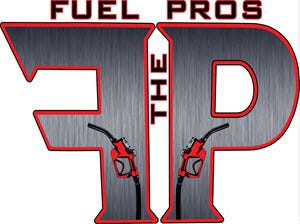
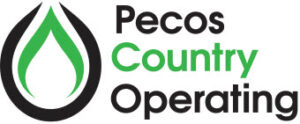
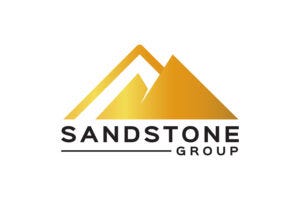
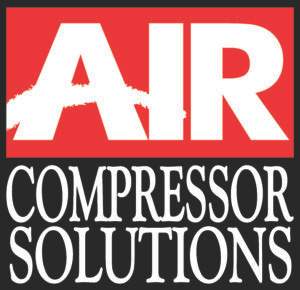
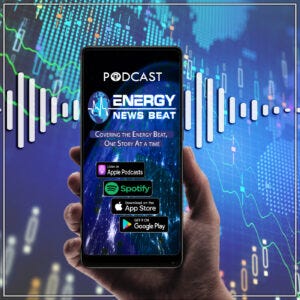
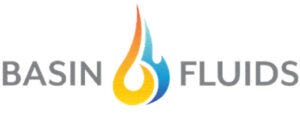
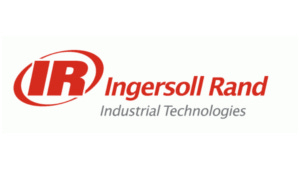
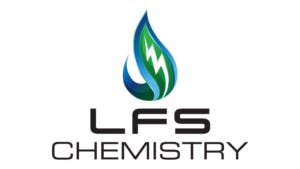
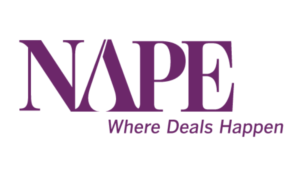

Sponsorships are available or get your own corporate brand produced by Sandstone Media.
David Blackmon LinkedIn
The Crude Truth with Rey Trevino
Rey Trevino LinkedIn
Energy Transition Weekly Conversation
David Blackmon LinkedIn
Irina Slav LinkedIn
Armando Cavanha LinkedIn
